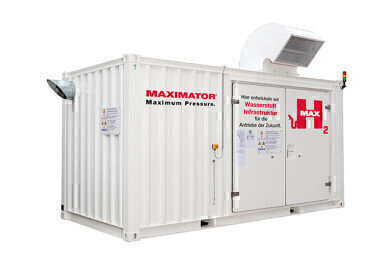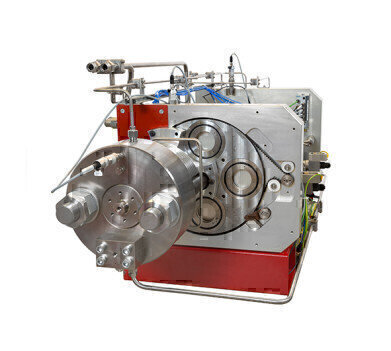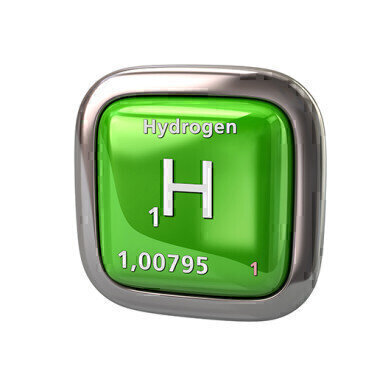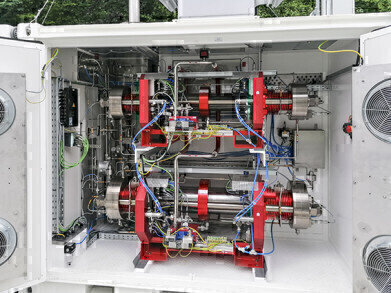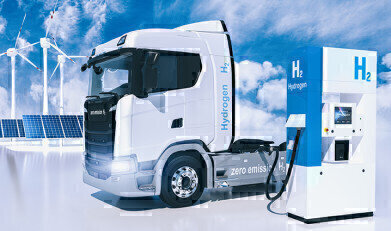Green Energy
One hundred hydrogen fuelling stations planned for Bavaria
Sep 24 2020
Traditionally famous for the Octoberfest, its beers and lush green pastures, Bavaria is now putting itself firmly on the map as a regional leader for green energy. The Bavarian state parliament announced on the 16th of September that they will support the development of a hydrogen mobility infrastructure consisting of 100 fuelling stations. The installation of additional electrolysers for green hydrogen production is integral to the plan.
Only five years ago, the organisation ‘H2 Mobility’ set the target of 100 hydrogen fuelling stations across Germany. At the latest count of 85 stations open, the achievement of this goal is clearly in sight. This recent announcement echoes that national goal within the Bavarian state, which with around 13 million inhabitants represents approximately 16% of the total German population. The speed and extent to which the hydrogen economy is scaling up are evident through this development.
In their announcement, the Bavarian Ministry for Business, Regional Development and Energy makes a clear focus towards supporting fuel cell operated trucks, buses and other logistics vehicles. They declare their belief that there is the greatest potential for hydrogen mobility in these transportation categories.
Responding to the recent announcement, Mathias Kurras, Head of Division for Maximator’s newly formed Hydrogen Division said that “hydrogen fuelling stations for buses and trucks need to deliver vast quantities of hydrogen at speed. That’s exactly what our fuelling stations do best”. He declares his support for the recent policy announcement: “we have played a part in enabling the development of hydrogen mobility in Switzerland, Germany and many other nations. With the creation of our new Hydrogen Division, we are ramping up our focus in this area in line with the scale-up in sector demand. We are thrilled that the green energy potential of hydrogen will be further unlocked through this ambitious hydrogen mobility infrastructure development programme”.
Maximator has interests in high-pressure testing, components and hydraulics. As part of a family-owned holding company, the Schmidt Kranz Group which has four generations of heritage dating back to the 1800’s, the business has continuously evolved to maintain its relevance. Kurras adds that “on this site in Nordhausen, our company used to make tractors. That was centuries ago. Through a culture of innovation and investment in the right opportunities, this business has transformed to be a key player in the modern hydrogen economy”. Some of the high-pressure testing equipment produced at the Maximator site is supplied to hydrogen cylinder manufacturers. They use it to conduct burst testing of their Type 4 composite cylinders to ensure safety within the hydrogen mobility sector.
Innovation is at the heart of Maxmator’s Hydrogen Division strategy. Their fuelling station utilises two stages of hydrogen compression with a gas intercooler between the stages. “This allows for optimal energy efficiency, operational flexibility and maximum hydrogen throughput”, says Kurras. He also highlights another ground-breaking innovation: “the high-pressure gas seal on our equipment must withstand pressures close to 900 bar. Our solution to automate the routine maintenance of that seal is unique”
In the past across all fuelling station manufacturers, changing out the gasket was a time-consuming process that meant the fuelling station must be taken offline for 1 or more days. For pilot stations, that has been tolerated either by the acceptance of the downtime or the use of a second fuelling station to build redundancy into the system – at a significant cost. But, as hydrogen fuelling stations become an integral part of our mobility infrastructure they must compete with traditional diesel and gasoline pumps and offer 99% availability, or better.
“Maximator have addressed that challenge with a patented innovation that operates like the rotating bullet chamber in a Stetson revolver” states Kurras. It holds multiple gaskets that can automatically be loaded into the compressor as required. To fully automate the process, a sensitive hydrogen gas detection system is integrated into the design that can measure the high-pressure seal leakage rate and determine the optimal timing for the gasket replacement.
The benefits of the automated gasket change-over system are a significant increase in availability and a significant reduction in maintenance costs due to a reduction in the frequency of service team visits to the fuelling station that is required. These points directly address two of the main challenges in the hydrogen fuelling station technology faces today.
R&D is at the heart of Maximator’s strategy and will be a critical enabler of their growth. Finding and training new people to join their growing team is also high on the agenda. On a workforce of 700 people globally, 400 of them in Germany, they have close to 50 apprentices in mechanical and electrical disciplines. “Recruiting the right people, equipping them with the skills they need and immersing them into our company culture of safety, flexibility, reliability and innovation is an ongoing task. It will remain at the heart of our growth strategy for decades to come” concludes Kurras.
By Stephen B. Harrison, sbh4 GmbH
Events
IWA World Water Congress & Exhibition
Aug 11 2024 Toronto, Canada
Aug 25 2024 Stockholm, Sweden and online
Sep 03 2024 Mexico City, Mexico
Sep 03 2024 Mexico City, Mexico
Sep 03 2024 San Diego, CA, USA
